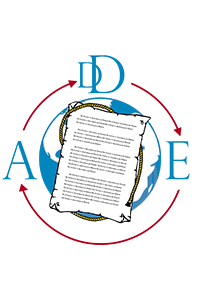A Critical Review on the Equivocal Definition of Comprehensible Input and the Misleading Use of the Term “Acquisition”
A Critical Review on the Equivocal Definition of Comprehensible Input and the Misleading Use of the Term “Acquisition”
Author(s): Hilal Peker, Onur ÖzkaynakSubject(s): Foreign languages learning, Language acquisition, Cognitive linguistics, Philology
Published by: T.C. MEHMET AKİF ERSOY ÜNİVERSİTESİ EĞİTİM FAKÜLTESİ
Keywords: second language acquisition; comprehensible input; language acquisition; language development; critical period;
Summary/Abstract: Stephen Krashen has been one of the prominent figures in the field of second language acquisition. His Input Hypothesis and Monitor Model can be considered as his most noteworthy work. Specifically, his principal proposition that emphasizes the importance of comprehensible input for language acquisition sheds light on linguistic competence. Krashen claimed that languages could be easily acquired as long as the acquirer is provided with natural bits of language. Despite the high acclaim they have received, Krashen’s ideas have also been harshly criticized by certain linguists as his claims failed to clarify certain issues related to the second language acquisition. In this respect, the authors of this paper critically review his Input Hypothesis and Monitor Model focusing on the insufficiency of the input for language acquisition, absence of an operational definition of comprehensible input, and misleading use of the term acquisition. In addition, the authors also adopt a satirical language to pinpoint the aforementioned insufficiencies and misleading components, while supporting their claims with recent empirical studies that were rarely conducted in the field.
Journal: Dil Eğitimi ve Araştırmaları Dergisi
- Issue Year: 6/2020
- Issue No: 1
- Page Range: 238-250
- Page Count: 13
- Language: English

